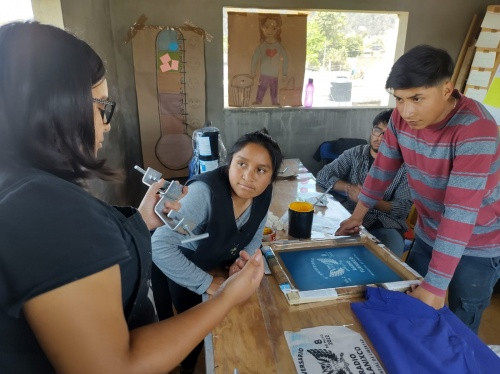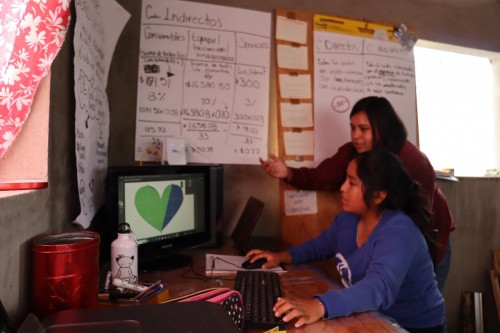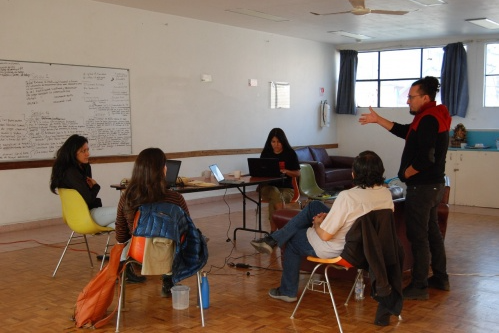News
UNESCO Bolsters Support to Indigenous Cultural Start-ups in Mexico

With the UNESCO World Conference on Cultural Policies and Sustainable Development – MONDIACULT 2022, just behind us, we wanted to highlight some of the incredible work supported by the International Fund for Cultural Diversity (IFCD) in Mexico.
Established by the UNESCO 2005 Convention on the Protection and Promotion of the Diversity of Cultural Expressions, the IFCD funds cultural projects in countries of the Global South that promote sustainable development and poverty reduction by empowering artists and culture professionals.
Following a competitive process, where 111 eligible projects were reviewed, the IFCD selected a total of six cultural projects in 2021, including the “Cultural Nests” project in Mexico. The project works with 30 indigenous artists and creatives from six communities located in the States of Guerrero, Oaxaca, and the State of Mexico.
We spoke to the project leader, Nadia Alejandra Jiménez Ortiz, about the project’s larger aims and what IFCD funding will help to achieve in these communities.
Q: Why did you choose the name “Cultural Nests”?
A: We were inspired by the name and methodology of “Language Nests” used in many countries around the world as part of linguistic revitalization projects.
The Cultural Nests Project seeks to protect and foster indigenous knowledge related to cultural expression and production by generating opportunities for intergenerational and cross-community exchange.
Q: What is the main objective of your project “Cultural Nests”?
A: Our purpose is to strengthen and contribute to Mexico’s cultural and creative sector by providing indigenous artists and creators with skills, training, and experience to help them launch self-directed and sustainable projects.
Our project will:
- Support indigenous artists and creators to establish and grow viable cultural business collective start-ups.
- Create networks and foster partnerships between indigenous cultural creators and artists.
- Promote access to national and international markets for the cultural goods and services produced.

Q: Why is this project so important?
A: Strong, self-sustaining cultural enterprises are fundamental for indigenous communities, enabling them to defend their right to self-determination, to preserve their languages and cultures, and ensure that their voices are heard at the local, national, and international levels. The cultural indigenous start-ups will allow beneficiaries to generate a regular income through their artistic work and support the local economies by establishing networks with external partners.
Q: Can you introduce us to the team behind this initiative?
A: Centro de Investigación en Comunicación Comunitaria (CICC) A.C. is a non-profit organization that works directly with vulnerable indigenous populations living in the Mexican states of Oaxaca, Guerrero, and the State of Mexico. Established in 2014 by a group of young people from indigenous and urban communities, its initial aim was to generate networks of mutual support and collaboration through sustainable community media initiatives, primarily radio, which enabled the production and dissemination of reliable local news media in minority languages, as well as a platform with which to strengthen local language and culture. Today, CICC seeks to champion indigenous cultural knowledge and practices.

Q: What is your action plan?
A: Our project will be implemented over 24 months and activities will take place in all the participating communities and Mexico City. The project is divided into a planning or pre-incubation stage and a development or incubation stage. During the planning stage, the main beneficiaries will participate in a training programme focused on developing strategic and management capacities to produce six cultural start-ups, thereby allowing them to take their first steps into Mexican cultural industries. In the development stage, seed funding will be distributed over an incubation period of nine months to each indigenous culture-related start-up. The development of a virtual e-commerce platform will be used to promote the work of indigenous artists, and an audiovisual campaign on indigenous art will raise awareness of the importance of diverse cultural expressions within Mexico.
Q: What do you hope will be the biggest achievement of the “cultural nests” project?
A: My hope is that our project will directly contribute to promoting the creation, production and distribution of cultural goods and services from excluded and marginalized populations of Mexico. The phased approach (Preparation/Pre-Incubation and Development/Incubation) will be delivered through a bespoke training programme that will be designed to respond to the specific context, needs and living conditions of the participating artists and cultural producers. This training will be designed according to an ethical code of practice jointly created by staff, participants and contractors based on respect for human rights and gender equality. In a globalized world in which indigenous people are an integral part, the Cultural Nests Project will promote culture and cultural production as a tool to reduce poverty and promote sustainable development in those communities who historically, and even today, feel socially excluded.









